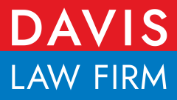Considering filing for bankruptcy, but don’t know where to begin? If you’re considering filing for bankruptcy, you probably have a hundred questions and concerns weighing on your mind. While it’s always best to consult a bankruptcy attorney to know exactly how bankruptcy will affect your life, here are a couple quick answers to help you understand the bankruptcy process.
What’s the Difference between a Chapter 7 and Chapter 13 Bankruptcy?
This is the most important part of a bankruptcy to understand. While an attorney can better help you decide which bankruptcy is best for you, a Chapter 7 is a liquidation bankruptcy and a Chapter 13 is a reorganization bankruptcy. Depending on your state of residence and your income, you may not qualify for a Chapter 7 bankruptcy. Chapter 7 is generally for debtors who are heavily in debt and don’t see themselves being able to pay back their creditors, or don’t have many non-exempt assets they plan on keeping. On the other hand, a Chapter 13 bankruptcy allows you to pay back your creditors in a three to five year time period and possibly hold onto some of your non-exempt property.
Will my Job be affected by filing?
No. Section 525 of the Bankruptcy Code outlaws an employer from discriminating against a current or potential employee because of a bankruptcy
What debts can be discharged in a bankruptcy?
Most of your unsecured debt will be erased in a bankruptcy except for child support, alimony payments, any debts from a drunk driving incident, student loans and income tax debt.
Will my bankruptcy remain private?
Unfortunately, no. A bankruptcy is a public court proceeding, but unless you are a public figure or celebrity, usually your bankruptcy will go unnoticed.
When will the bankruptcy come off of my credit report?
A Chapter 7 bankruptcy will remain on your credit report 10 years from the date of discharge.
Will I be able to get credit before the 10 years are up?
Yes. Many banks and creditors have special lending programs for individuals with a bankruptcy on their record. Some lenders will charge a higher interest rate and others will require a down payment or pre-payment on your part.
If you’re considering filing for bankruptcy, it’s always best to contact a El Paso bankruptcy lawyer to help answer your questions and give insight about the process.
About the Author: Jeff Davis is the Owner of the Davis law firm and a highly experienced El Paso bankruptcy attorney. To find out more information about a El Paso bankruptcy lawyer, please visit www.jeffdavislawfirm.com.
